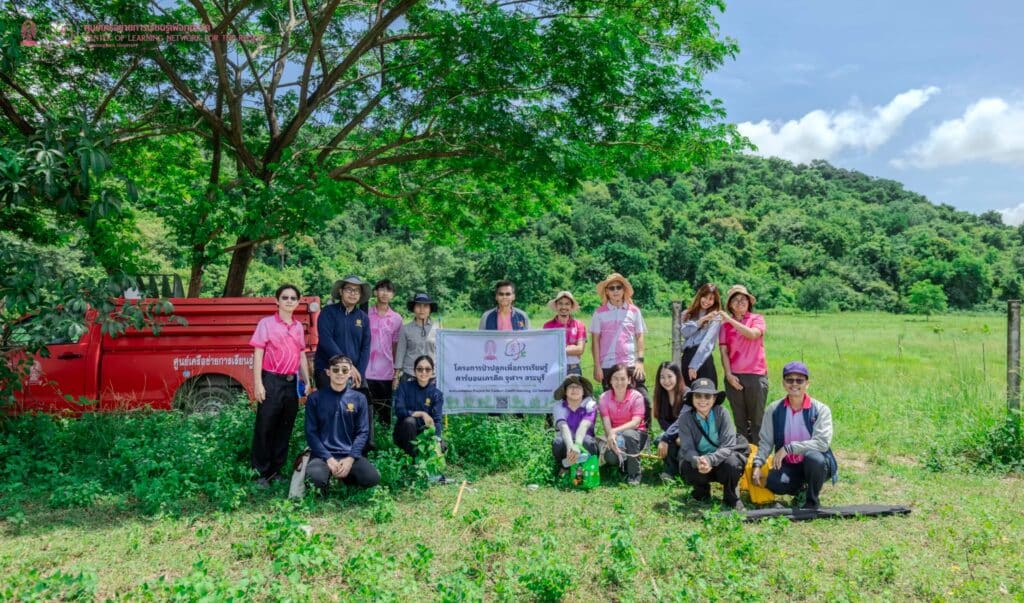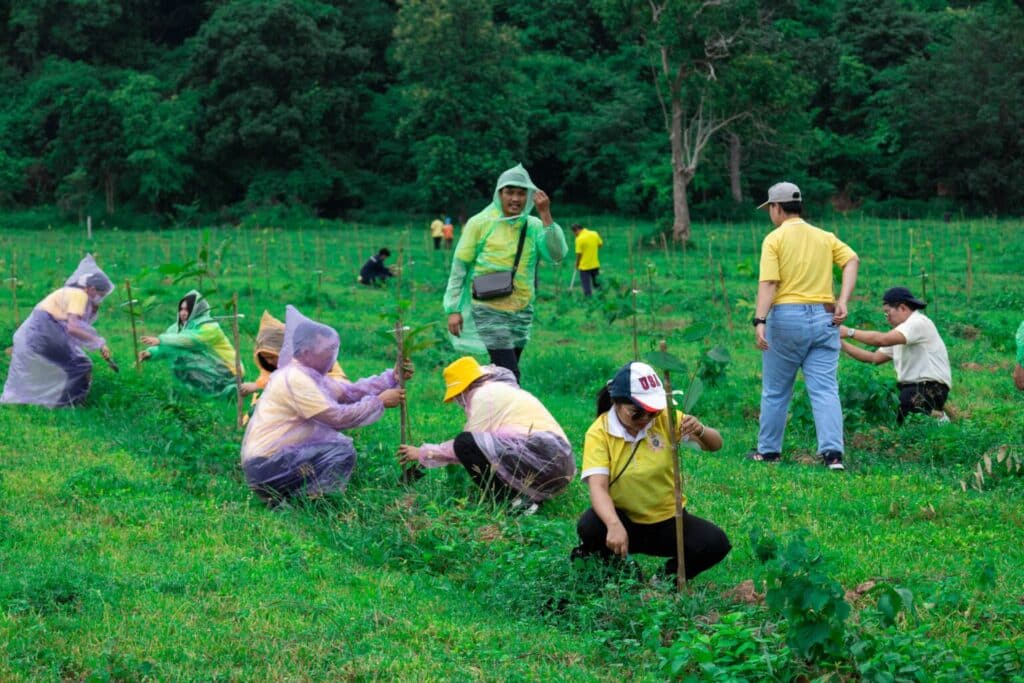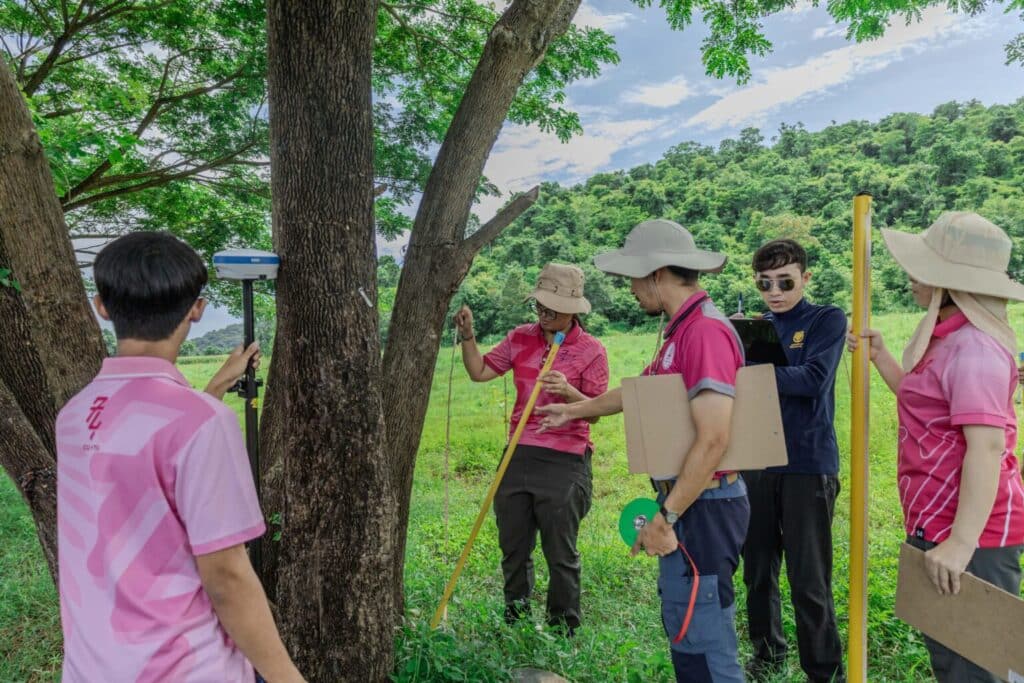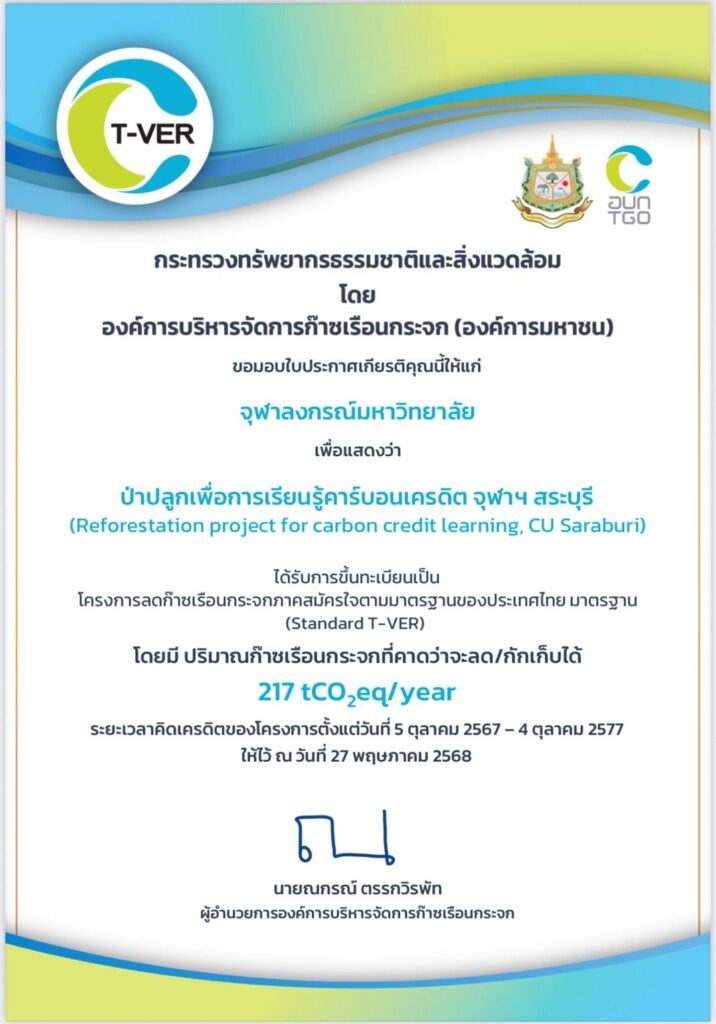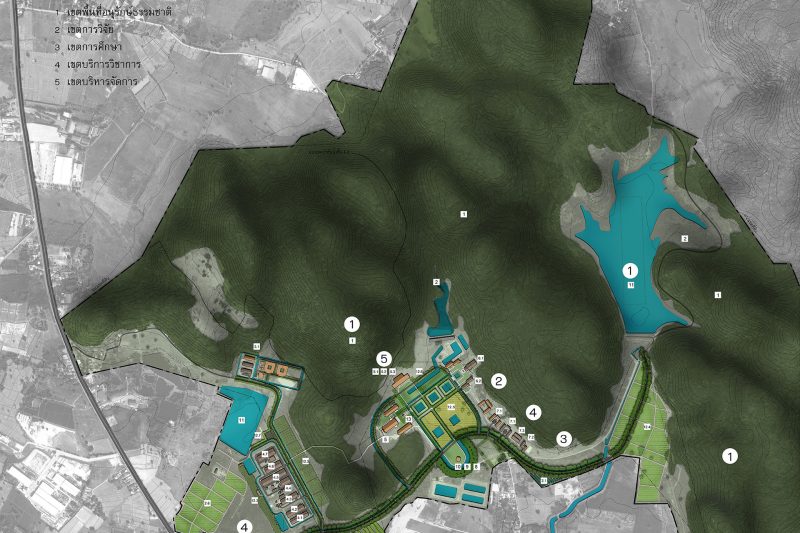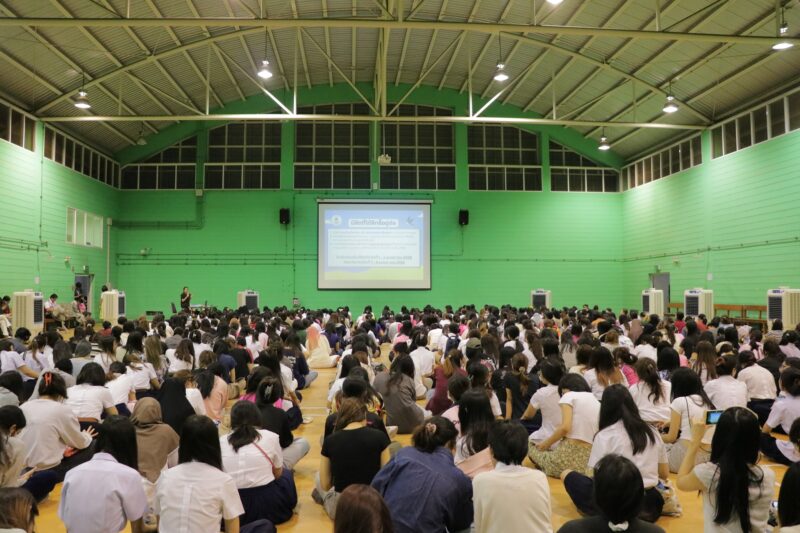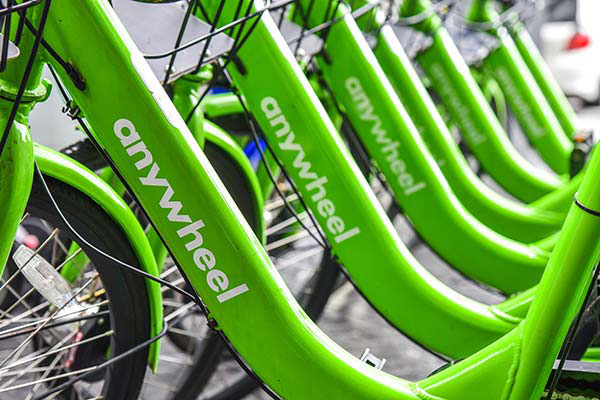Chulalongkorn University Restores Degraded Forest Ecosystems into a Carbon Credit Learning Forest to Preserve Biodiversity
As global environmental challenges intensify — including climate change, greenhouse gas emissions, and the loss of natural forests — Chulalongkorn University recognizes the crucial role of forest ecosystems as the foundation of biodiversity and environmental stability. With this understanding, the university has launched the “Reforestation Project for Carbon Credit Learning, CU Saraburi” to restore degraded forest areas, revitalize natural balance between humans and the environment, and promote practical learning about forest ecology and carbon credit systems.
The Reforestation Project for Carbon Credit Learning, CU Saraburi, is implemented by the Center of Learning Network for the Region (CLNR), Chulalongkorn University, with strong collaboration from university administrators, faculty members, staff, students, alumni, as well as local communities and the private sector. Together, they have transformed a 42.2-rai (approximately 16.6-acre) area of Chulalongkorn-owned land in Tan Diao Subdistrict, Kaeng Khoi District, Saraburi Province, into a lush green space that serves as a living classroom for ecological learning.
The project site was once a degraded forest (an ecosystem under threat) that lacked care and faced the risk of biodiversity loss. The initiative therefore aims to maintain and extend existing ecosystems by planting diverse species of trees to promote soil nutrient cycling and create natural habitats for various animal species. Over time, the ecosystem has gradually recovered — surrounding communities now enjoy greener landscapes, and small wildlife has returned to inhabit the area once again.
Beyond reforestation, the project also serves as an educational and research center for forest ecology, carbon credit systems, and biodiversity conservation. It welcomes youth, students, and the general public to participate in learning and forest stewardship activities. The program includes workshops on conservation practices, tree species identification, carbon sequestration measurement, and biodiversity assessment.
The project’s success is evidenced by its official registration under Thailand’s Voluntary Emission Reduction Program (Standard T-VER), certified by the Thailand Greenhouse Gas Management Organization (Public Organization), Ministry of Natural Resources and Environment, on May 27, 2025. The 42.2-rai area is capable of sequestering up to 217 tons of CO₂ equivalent per year, making it the highest carbon sequestration rate per unit area among higher education institutions in Thailand.
The CU Saraburi Reforestation Project for Carbon Credit Learning exemplifies how Chulalongkorn University, as an institution, works directly to restore and extend ecosystems under threat while promoting the sustainable biodiversity of both plants and animals through reforestation, research, and community-based learning.
This achievement not only expands green spaces and reduces greenhouse gas emissions but also raises environmental awareness, provides learning opportunities for youth, and serves as a model for other higher education institutions. It demonstrates the power of integrating academic knowledge, research, and cross-sector collaboration to preserve the planet and its biodiversity for future generations.
[ https://www.chula.ac.th/news/245359/ ]
[ https://www.chula.ac.th/en/news/251176/ ]
By Center of Learning Network for the Region, Chulalongkorn University
Others

